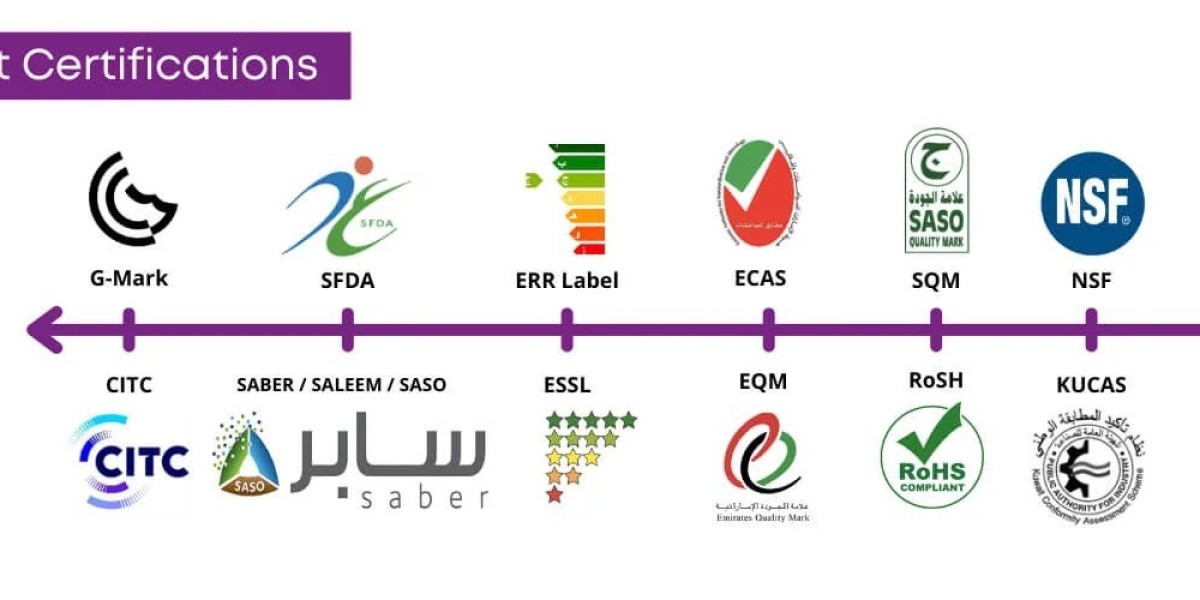What Is ISO Certification?
ISO (International Organization for Standardization) is a globally recognized body that develops standards to ensure quality, safety, efficiency, and consistency across industries. ISO certification verifies that an organization adheres to a specific ISO standard, demonstrating that its processes are aligned with international best practices.
Popular ISO standards include:
ISO 9001 – Quality Management Systems
ISO 14001 – Environmental Management
ISO 45001 – Occupational Health and Safety
ISO 27001 – Information Security
ISO 22000 – Food Safety Management
Why Should You Get ISO Certified?
ISO certification is more than just a formal label—it’s a strategic investment in your organization’s long-term success. Here’s why businesses around the world are pursuing ISO certification:
✅ Enhanced Credibility
ISO certification builds trust with clients, regulators, and partners by proving your commitment to quality and compliance.
✅ Competitive Advantage
It helps you stand out in tenders, contracts, and global markets, especially where certification is required.
✅ Better Operational Efficiency
Certification requires process standardization, which leads to fewer errors, reduced waste, and improved productivity.
✅ Customer Satisfaction
A focus on consistent quality improves the overall customer experience, boosting retention and loyalty.
✅ Risk Management
ISO standards promote proactive risk identification and mitigation, safeguarding your operations and reputation.
Who Needs ISO Certification?
ISO certification is suitable for organizations of all sizes and sectors, including:
Manufacturing
Construction
Healthcare
IT and Software
Logistics and Supply Chain
Education
Food and Beverage
Government and Public Services
Whether you're a startup looking to build credibility or a large enterprise aiming for global expansion, getting ISO certified can add measurable value.
The Step-by-Step Process to Get ISO Certified
Obtaining ISO certification involves several important steps. Here’s a simplified breakdown:
1. Choose the Right ISO Standard
Identify the ISO standard(s) relevant to your business needs. For example:
ISO 9001 for quality assurance
ISO 27001 for information security
ISO 45001 for occupational health and safety
2. Conduct a Gap Analysis
Evaluate your current processes against the selected standard’s requirements. This helps identify areas that need improvement.
3. Develop a Management System
Design and implement a management system tailored to the ISO standard. This includes:
Documented procedures
Process controls
Roles and responsibilities
Risk assessments and objectives
4. Employee Training
Ensure all team members understand the new system, their roles, and the importance of compliance.
5. Internal Audit
Perform an internal audit to check whether the system works effectively and meets ISO criteria. Address any non-conformities.
6. Management Review
Company leadership reviews system performance and ensures alignment with business goals.
7. Select a Certification Body
Hire an accredited third-party certification body to conduct the external audit.
8. Certification Audit
The external auditor evaluates your system. If successful, you receive a certificate valid for three years, with annual surveillance audits.
To simplify this process and avoid common pitfalls, many companies partner with professional consultants to help them get ISO certified quickly and efficiently.
How Long Does It Take to Get ISO Certified?
The time required depends on several factors:
The size and complexity of your organization
The number of ISO standards being implemented
Existing processes and documentation
Availability of internal resources
For most SMEs, the process can take 2 to 6 months, while larger enterprises may need 6 to 12 months for full implementation and certification.
Common Challenges (And How to Overcome Them)
❌ Lack of Internal Expertise
Solution: Work with an experienced ISO consultant to guide your team.
❌ Poor Documentation
Solution: Implement clear, consistent documentation tailored to your business processes—not generic templates.
❌ Employee Resistance
Solution: Provide training and highlight the long-term benefits of certification to build internal buy-in.
❌ Choosing the Wrong Certification Body
Solution: Always go for a certification body accredited by globally recognized authorities (e.g., IAS, UKAS).
Cost of Getting ISO Certified
ISO certification costs vary depending on:
The standard(s) chosen
Company size and complexity
Consultant and auditor fees
Required system development and training
Typically, costs for small to mid-sized companies range between $2,000 to $10,000. While this may seem like a significant investment, the long-term benefits—especially in customer acquisition and operational efficiency—far outweigh the expense.
Why Work with ISO Consultants?
Hiring professional ISO consultants helps you:
Save time and effort
Avoid implementation errors
Ensure smoother audits
Create tailored documentation
Receive ongoing support post-certification
Consultancies like Qdot specialize in helping UAE businesses build robust systems, prepare for audits, and achieve successful ISO certification across various standards.
Final Thoughts
To get ISO certified is to take a step toward operational excellence, customer satisfaction, and global recognition. It’s a sign to the world that your business values quality, safety, and consistency—core traits that today’s markets demand.
While the process may seem complex, the results speak for themselves: increased credibility, improved efficiency, and greater market access.
Whether you're preparing for ISO 9001, 45001, 14001, or any other standard, the right planning—and the right partner—can make all the difference. For expert guidance every step of the way, consider working with Qdot, one of the UAE’s most trusted names in ISO certification and consulting.






